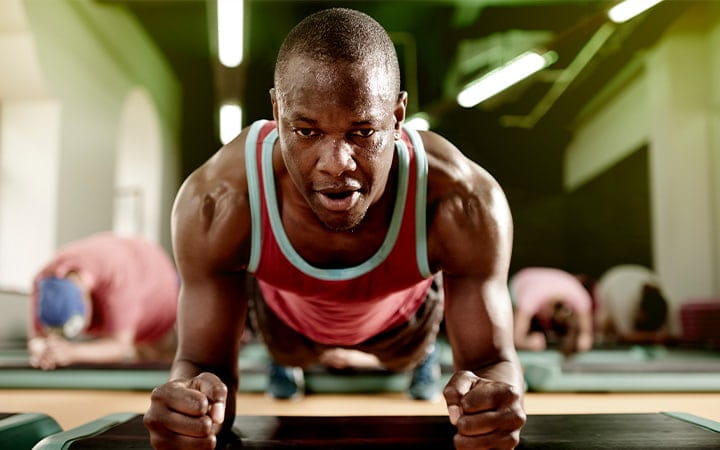Can Intense Exercise Put Your Heart at Risk?
April 24, 2024

Getting regular exercise is one of the best things you can do for your heart. But for some people, extreme exercise and athletic competition can pose a risk to heart health.
Some people may be at risk because of existing heart disease. Or perhaps they experience strange symptoms such chest pressure during physical exertion. These are among reasons exercise enthusiasts and athletes should be evaluated by a heart specialist, says Bradley Lander, MD, University Hospitals director of sports cardiology.
“If people are developing symptoms with exercise or with exertion, such as chest pressure, tightness, pain, unusual shortness of breath, heart racing or palpitations, those are red flags and they need to be seen,” says Dr Lander.
The Exercise Paradox
In general, regular exercise will lower your risk of having a cardiac event. But in some cases, extreme exercise can damage the heart.
Research is showing that a small percentage of middle-aged and older athletes who compete in endurance events over many years may be at higher risk for developing atrial fibrillation – an irregular heartbeat – and other heart problems. Atrial fibrillation can lead to stroke and other complications.
“For most people exercise is good. It lowers the risk of cardiac events,” says Dr. Lander. “But some studies show extreme exercise over long periods of time, like marathon running or triathlons, is associated with conditions like atrial fibrillation. However, it still usually has a positive effect on blood pressure, cholesterol and diabetes risk and overall, it lowers the risk of death.”
Athlete’s Heart
“Athlete’s Heart” refers to structural, electrical and functional changes to the cardiovascular system due intense exercise over a long period of time.
Someone who does intense exercise may have a larger heart than normal. These changes are natural and they help the heart supply blood to tissues during prolonged exercise. But it is important to make sure structural changes are not due to disease, says Dr. Lander.
Getting Your Heart Checked
Intense exercise can also elevate risk of sudden cardiac arrest in people with underlying heart disease. “Anybody who has an inherited cardiac condition who wants to play sports or who wants to exercise avidly should be seen before they do so,” says Dr. Lander. “The same goes for anybody who has family history of sudden cardiac arrest or sudden cardiac death, especially if the person was younger than 60. It doesn’t mean they won’t be allowed to exercise; it just means there could be hidden risk factors that need to be evaluated first.”
Other reasons to be evaluated include:
- Sudden and unexplained decrease in exercise performance. “If people notice a decrease in their performance or stamina over a relatively short period of time that’s not attributable to changes in training patterns or deconditioning, that may be a sign of heart disease,” says Dr. Lander.
- A known cardiac condition or family history of a cardiac condition. Genetic conditions that can put an athlete at risk include:
- Hypertrophic cardiomyopathy – heart muscle disease.
- Arrhythmogenic right ventricular cardiomyopathy – heart muscle disease.
- Familial dilated cardiomyopathy – heart muscle disease.
- Long QT syndrome – electrical disorder.
- Inherited arrhythmias – rhythm disorders.
Return to Play After Illness
Dr. Lander says most patients who wish to exercise and play sports can do so, even with heart disease. The goal is to find patients a safe way to return to exercise if they’ve had a heart attack or other disease.
“One of the main tenets of sports cardiology is finding a way to prevent people from being disqualified permanently,” he says. “In the past, people have been told because of a certain condition, they shouldn’t exercise at all. Our field is focused on trying to find evidence-based, data-driven ways to keep people doing what they love.”
Related Links
Sports cardiologists evaluate competitive athletes from teens to the pros, as well as recreational athletes and avid exercisers. University Hospitals Harrington Heart & Vascular Institute is dedicated to providing the highest quality care for all patients. Learn more.
Tags: Exercise, Heart Health, Bradley Lander, MD


